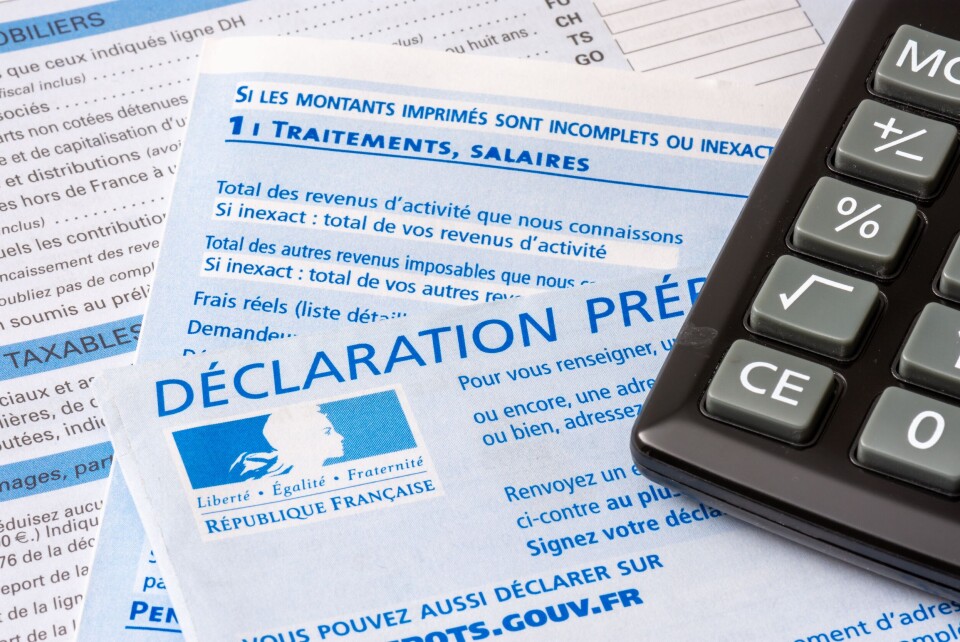-
Tax declarations in France: How to tell an official email from a scam
Staying alert can help protect you and your money during this declaration period
-
Key errors foreigners may make with French tax declarations
We look at some of the pitfalls that could prove costly to newcomers
-
American expats in France: 5 tips for your first tax season
The rules require US citizens to file with the IRS, their state and the French authorities
What do you risk if you are late with your French tax declaration?
You may be required to pay significantly more and be subject to monthly interest although exceptions can be made. Plus, what to do if you notice an error on your return

Income tax declarations opened in France in April but the deadlines for completion vary depending on how you file and where you live. The last deadline - for residents of departments 55 (Meuse) to 976 (Mayotte) - fell on June 8 at 23:59.
Read more: Millions to receive tax reimbursement in France: why and who?
What happens if you miss the deadline?
If you do not declare when required, or miss the deadline, you risk:
Tax amount increases as follows:
- 10% if you have not received a formal mise en demeure warning letter;
- 20% if you have received a formal notice and you send in your return within 30 days of receiving this warning
- 40% if the return was filed 30 days or more after receiving a formal notice.
Note that if the tax authorities discover undeclared activity, such as undeclared work, a surcharge of 80% will be applied, without it being necessary for a formal notice to be sent.
Monthly interest
In addition, late filing also requires interest payments at 0.2% of your tax bill, per month of delay up until the end of the month in which you finally file your declaration.
Is there any leniency for late returns?
Some circumstances, such as a family death or illness, may enable the granting of an extension to the deadline. This can be requested from the tax authorities.
They state: “This can be examined on a case-by-case basis, after analysis of the applicant's personal situation.”
To do this, you must send a written request to the tax department, attaching the form 4805-SD and the supporting documents required.
What about if you don’t make a declaration at all?
The DGFiP central tax authorities told Actu.fr that a case by case approach is again applied.
They said: "In the event of failure to declare, depending on whether the omission is in good or bad faith, penalties apply. In all cases, the tax is due with a surcharge and/or late penalties depending on the duration.”
What if you have declared on time but noticed an error in your return?
If the error is a genuine 'human error' mistake, the tax office is lenient with regard to corrections.
Your tax amount will not be subject to an increase, but you will be required to pay late payment interest on the amount if you only noticed the error after the deadline has passed. Tax office sources told French media last year that this was reduced to 0.1% and was only applied from July 1.
Changes to online declarations can be made until the avis d’impôt assessments are issued in late summer. After this the Corriger ma déclaration service is open for further changes via your personal space at the tax website from early August. In 2021 it was open from August 4 to December 15.
If you declared on paper and realise you made a mistake or forgot to declare something (before receiving your avis d’impôt) print a new version of the relevant blank forms, fill them out correctly and write at the top: DECLARATION RECTIFICATIVE, ANNULE ET REMPLACE. Send it to the tax office by recorded delivery (lettre recommandée avec avis de réception).
If you have already received your avis there is a formal procedure called a réclamation instead.
Related articles
French income tax declaration deadline looms - seven rules explained
French tax declarations: Four common and costly errors to avoid
France’s deadline for paper income declarations extended to end of May
























